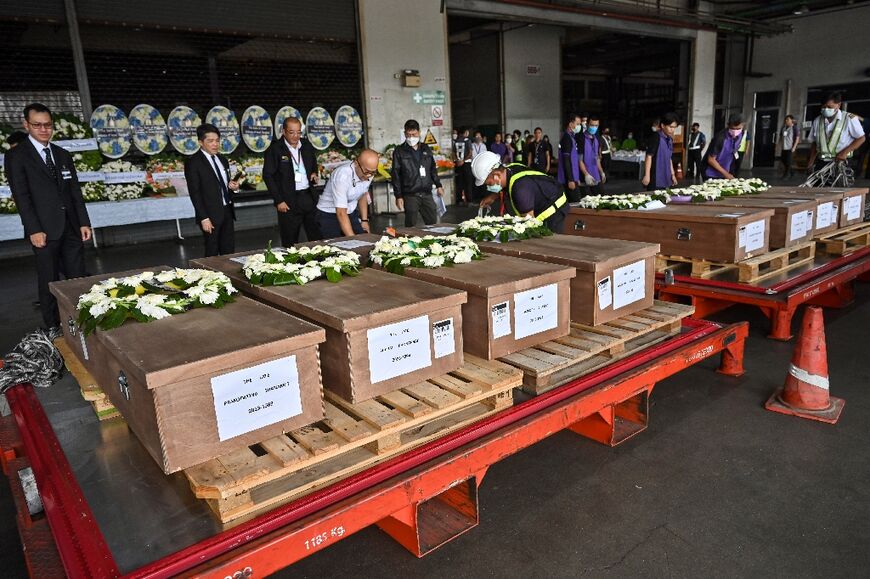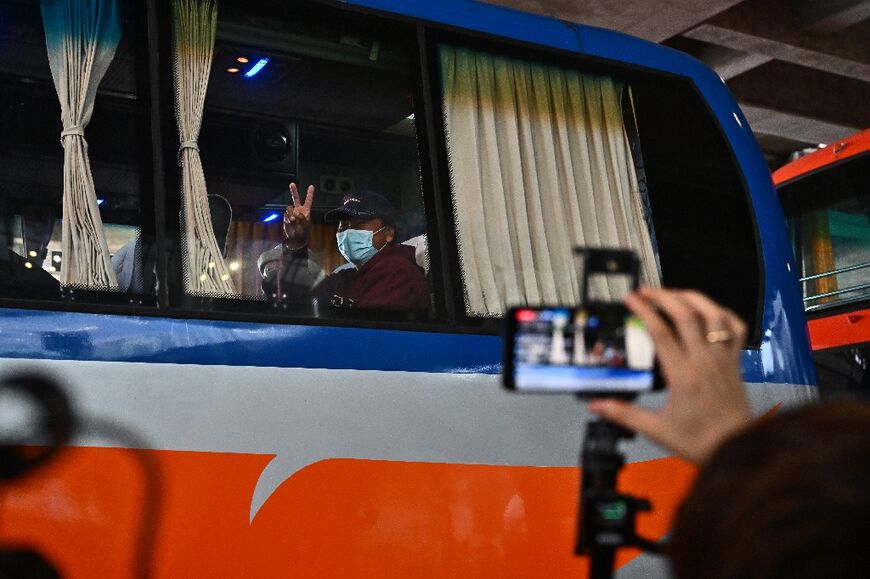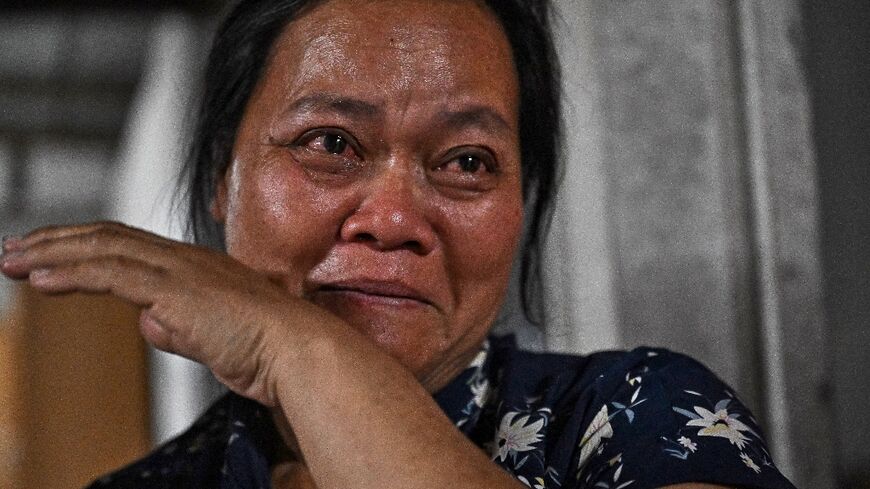Israel-Hamas war prompts thousands of Thais to flee

Along with thousands of fellow Thai agricultural workers, Pornchai Somnuan has fled the fields to return home as Israel's war with Hamas rages in the Gaza Strip.
When Hamas gunmen attacked Israel on October 7, farmhands who had travelled thousands of miles (kilometres) to work close to the Gaza border found themselves on the front line.
In all, 34 Thai nationals were killed and 19 wounded, while 24 others were taken as hostages back to Gaza, according to Thai officials.
The toll sparked fear among many of the 30,000 Thais working across Israel, with Pornchai and many of his friends seeking help to leave.
"My family wanted me to go back. They're concerned," the 27-year-old told AFP in a Tel Aviv hotel, from which diplomats were facilitating evacuation flights.
"I have seven friends. Four have returned, so there are three left," he added.
- Repatriation effort -
Boxes of Thai noodles and packs of bottled water were waiting at the door of a room used to process the details of those seeking to leave.
Naruchai Ninnad, deputy head of consular affairs at Thailand's foreign ministry, flew in to support the evacuation efforts.
"Our main priority is to get back as many Thais as possible who needed to be repatriated," he said.
Bangkok has organised dozens of flights to repatriate around 7,500 people, while some 1,500 others have made their own way home, Naruchai said.
"We do not force them to go back. But we recommend them to go back during this time for their own safety, and of course they can return once everything is calm," he said.
Thai Prime Minister Srettha Thavisin has repeatedly urged citizens to return home.
His cabinet has approved 50,000 baht ($1,400) compensation for each labourer who returns from Israel, with the government also stating the returnees would be eligible for a low-interest loan of up to 150,000 baht.
In tandem, Thailand deployed its foreign minister to the region to press for the release of its citizens among the more than 240 hostages.
A team of Thai negotiators travelled separately to Iran, where they held direct talks with Hamas on October 26.
- 'I'm scared' -
While the war rages in Gaza, there has also been cross-border fighting between Israel and Lebanon's Hezbollah, which has worried labourers near that frontier.
"My working life on a daily basis is experienced with tanks... so I don't feel at ease," said Warongkorn Srisuk after leaving his job near the border with Lebanon.
But like many Thais motivated to work in Israel by greater earning power, Warongkorn said he was "worried about my wages" when he goes home.
"I would like to come back, when the war ends. My employer will send me back here," he told AFP in Tel Aviv.
Bangkok signed an agreement with Israel more than a decade ago to facilitate Thais working in the agricultural sector.
Yahel Kurlander, a migration scholar, said they have faced issues such as failing to receive their full overtime pay, or a lack of suitable heating or cooling in cramped accommodation.
Thai workers are usually housed together in caravans or containers and, in case of danger, have to race to a mobile shelter rather than step into a safe room built into each permanent home.
"The workers were more vulnerable to the attack" on October 7, said Kurlander, who is based at Tel-Hai College in northern Israel.
Some 1,400 people were killed in the Hamas attack, the majority civilians, according to Israeli officials.
Since Israel launched its blistering response on Gaza, more than 10,300 people have been killed, also mostly civilians, the health ministry in the Hamas-run territory said.
With thousands of Thais going home, Kurlander warned "we are on the edge of a turning point" that could see Israel hastily bring in other migrant workers without a bilateral deal outlining their rights.
While around two-thirds of Thais have opted to stay for now, the war has fundamentally changed the way some of them view Israel.
For Pornchai, he had a "nice working" life in central Israel farming avocados.
But even when the war ends, he is unlikely to return: "I probably won't come here. I'm scared."






